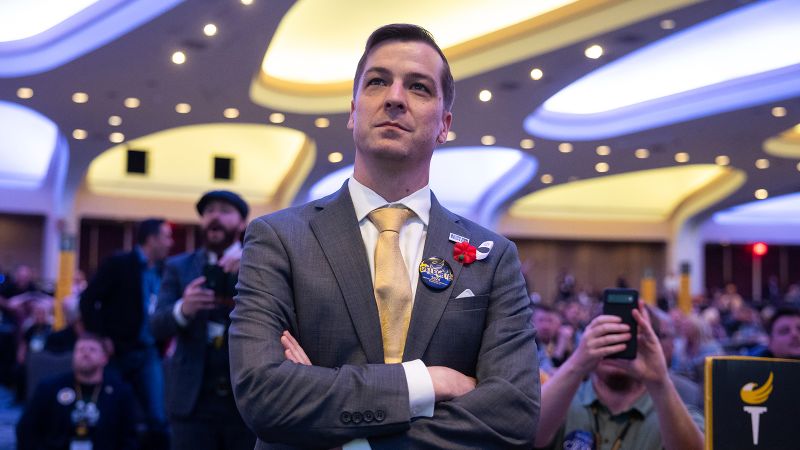Chase Oliver secured the Libertarian Party presidential nomination after seven rounds of voting at the party’s convention in Washington, DC. The 38-year-old, previously a Congressional candidate in Georgia, aims to make Libertarian values more appealing to a wider audience. Oliver believes attaining 2% of the vote in the general election is a reasonable goal, citing his past performance in Georgia. He plans to reach out to as many people as possible to disrupt the balance of power between Democrats and Republicans.
Oliver criticized Donald Trump’s appearance at the convention, calling him a war criminal and stating he does not belong in the Libertarian party. Oliver advocates for simplifying citizenship pathways for immigrants, expanding work visas, opposing foreign wars, and promoting alternatives to abortion. His victory was a defeat for the right-leaning Mises Caucus within the party, with Oliver emphasizing unification of the party around common principles in his acceptance speech. Independent candidate Robert F. Kennedy, Jr. was eliminated early in the nomination process.
Oliver clinched the nomination after a deal with Mike ter Maat, securing his endorsement as vice presidential candidate. Despite early support for Michael Rectenwald from the Mises Caucus, Oliver emerged as the winner of the nomination in a final round of voting against “none of the above.” With 60% of the vote, Oliver beat out the alternative option. Delegates supporting Oliver believe his broad appeal can attract voters from both major parties, making him a more appealing choice than Rectenwald.
Oliver’s visits to all 50 states prior to the convention demonstrate his commitment to earning as many votes as possible. He aims to increase the number of registered Libertarians and expand ballot access for the party, regardless of whether he wins the presidency. Rectenwald criticized Oliver’s nomination as a move towards embracing “wokeness,” which he views as an authoritarian ideology. Oliver, who is openly gay, joined the Libertarian Party after an encounter at the Atlanta Pride Festival in 2010.
Oliver’s platform includes advocating for immigration reform, opposing foreign wars, and promoting alternatives to abortion. He emphasizes a message of unity within the Libertarian Party based on common principles. While his primary goal is to increase his share of the vote in the general election, Oliver also aims to achieve victory through other metrics, such as expanding party registration and ballot access. At the heart of Oliver’s campaign is a vision of disrupting the two-party system and offering a third option that appeals to a broader spectrum of voters.


